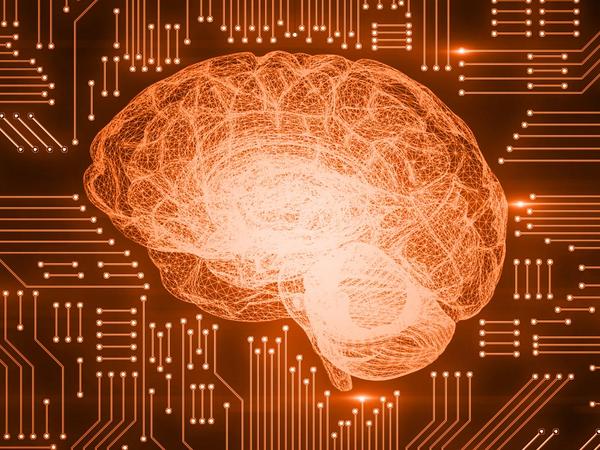Shaping the New Paradigm of Corporate Learning
Show me similar content
Corporate Learning
2020 will go down in history as a year of profound disruption and transformation for corporate education. Learning providers were compelled to go virtual almost overnight. Workforces found themselves abruptly immersed into online environments for work and study. Company managers suddenly faced the prospect of having to rapidly upskill and reskill their people from home.
On the one hand, the global pandemic can be seen to have accelerated a trend that had already been gaining traction – namely the experimentation of multimedia and virtual approaches as a way to deliver a richer, more flexible, ultra-personalized learning experience. Over 82% of organizations have increased their investments in digital learning platforms since this time last year. Research from IBM now suggests learners acquire five times more material in online settings that harness multimedia compared to traditional face-to-face courses. When it comes to reskilling a workforce, digital education has clearly become the only show in town.
L&D’s Strategic Turn
On the other hand, COVID-19 has catapulted L&D straight into the management boardroom and challenged longstanding assumptions around corporate education. Digital learning is, for the first time considered ‘business critical’ as captains of industry recognize its fundamental role in fostering resilience. In building agile firms with the ability to adapt swiftly to an ever more unstable, fast-evolving, and turbulent business operating climate. In a brave new era of automation, robotics, AI and skills obsolescence, only those enterprises embracing continuous learning and versatile workforces look set to thrive.
Indeed, e-learning, in all its facets, has been imbued with new meaning at almost every level. Alongside the newfound strategic relevance in futureproofing an enterprise, it is also rapidly becoming a core enabler of daily business activity. With L&D now fundamental to equipping staff with the remote working and digital skills required to sustain operations, the link between digital learning and business continuity has never been so explicit.
The Great Experiment
That is not to suggest that it has all been plain sailing for designers of e-learning. The worldwide switch-over to remote working, in essence, became a massive social and technological experiment as organizations moved quickly to digitalize in-person training. In some instances, the frailties and limitations of certain e-learning technologies were cruelly exposed. Some were considered too crude and unsophisticated. Others were found to elicit ‘digital fatigue’ – a state of learner saturation and diminishing returns stemming from overreliance upon a single, monotonous learning format.
Indeed, in the past year alone, a great deal has been discovered about best practice in digital education. A growing number of learning providers now appreciate the importance of designing approaches that blend synchronous and asynchronous formats. Others have diversified away from pure-play e-learning and self-study in an effort to promote collaborative learning and drive engagement.
The ‘great experiment’ has also validated what many had long expected: that micro-lectures that bundle content into small, coherent bite-size chunks that stimulate the senses are demonstrably more effective than conventional ‘binge learning.’ That personalized, in-the-moment learning that is embedded within workflows, applied on the spot and directly related to the task at hand helps learners retain information much more effectively than the theoretical, teacher-led instruction of yesteryear.
Experience Design
Customers have become considerably more discerning too. Buyers demand more efficient experiences now that they appreciate the nexus between L&D, upskilling, engagement and bottom-line performance. Even the expectations of end-users have risen exponentially. Modern learners want their learning to adapt to their lives and be available on-demand 24/7, anytime, from anywhere. They seek differentiated learning pathways that align with their individual learning styles and preferences.
At tts, we understand these dynamics at play. We grasp the need for a crossover between knowledge management and learning to create spaces in which social learning, user-generated content and curated content can converge so as to better convert learning into doing. We acknowledge the need to pivot from instructional design to human-centered experience design: harnessing the power of AI, chatbots, augmented reality, and gamification to create novel formats such as peer-to-peer and just-in-time learning journeys.
Embedded Learning
Most of all, we comprehend the necessity of integrating learning data with real business data such as sales and HR insights, and of delivering user adoption solutions that can be incorporated into almost any system environment. As such, we can ensure the sort of curated, contextual, personalized content that that fully develops the performance potential of employees and unleashes material efficiency gains.
It is our steadfast belief that an organization’s competitive advantage derives from its individually specific blend of systems and processes. We strive to empower our clients to harness the custom knowledge that drives their uniqueness and to translate that into superior performance.
In this vein, we are proud to have been awarded ‘Core Leader’ status in the 2021 Fosway 9-Grid™ for Digital Learning, a unique and objective analysis of the European HR and learning technology markets, enabling companies and professionals to make informed decisions around their solution needs.
Being designated a Core Leader is recognition of the way in which our tts performance suite straddles the entire learning continuum across the five key moments of need, and smoothly interlocks with our customer’s landscapes and tools. Fosway’s study rightly highlights that digital learning in a corporate setting works only as a holistic combination of concepts and technologies, and that is precisely what we have set out to achieve as we press forward with our efforts to revolutionize the learning experience.
Show me similar content
Corporate Learning



